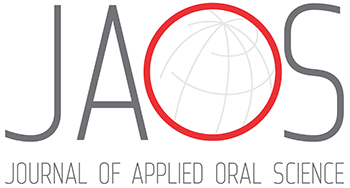New knowledge of the structure and biological activity of endotoxins (LPS) has revolutionized concepts concerning their mechanisms of action and forms of inactivation. Since the 1980's, technological advances in microbiological culture and identification have shown that anaerobic microorganisms, especially Gram-negative, predominate in root canals of teeth with pulp necrosis and radiographically visible chronic periapical lesions. Gram-negative bacteria not only have different factors of virulence and generate sub-products that are toxic to apical and periapical tissues, as also contain endotoxin (LPS) on their cell wall. This is especially important because endotoxin is released during multiplication or bacterial death, causing a series of biological effects that lead to an inflammatory reaction and resorption of mineralized tissues. Thus, due to the role of endotoxin in the pathogenesis of periapical lesions, we reviewed the literature concerning the biological activity of endotoxin and the relevance of its inactivation during treatment of teeth with pulp necrosis and chronic periapical lesion.
Bacterial endotoxin (LPS); Gram-negative bacteria; Calcium hydroxide
